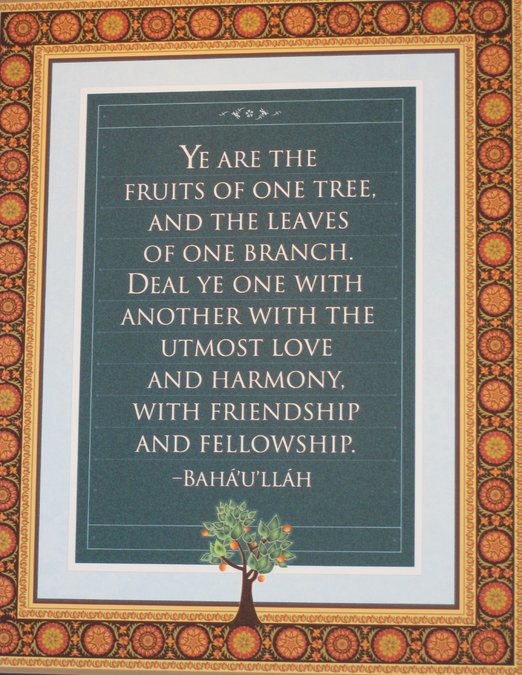Organized Religion
The followers of Christianity, Islam, Buddhism, and Hinduism comprise roughly three-quarters of the global population. They are the world’s major organized religions. What has organized religion done for their adherents? Not a whole lot except to weaken them.
The Abrahamic Religions
Christianity
Christianity is the world’s largest religion with 2.5 billion followers. The New Testament promotes pacifism.
You have heard that it was said, Eye for eye, and tooth for tooth. But I tell you, do not resist an evil person. If anyone slaps you on the right cheek, turn to them the other cheek also. You have heard that it was said, ‘Love your neighbor and hate your enemy.’ But I tell you, love your enemies and pray for those who persecute you; – Matthew 5:39-44 (also in Luke 6:27-37)
Put your sword back in its place… for all who draw the sword will die by the sword. (Matt. 26:52)
Therefore, as God’s chosen people, holy and dearly loved, clothe yourselves with compassion, kindness, humility, gentleness and patience. Bear with each other and forgive one another if any of you has a grievance against someone. Forgive as the Lord forgave you. And over all these virtues put on love, which binds them all together in perfect unity. (Colossians 3:12-14)
Do not repay anyone evil for evil. Be careful to do what is right in the eyes of everyone. If it is possible, as far as it depends on you, live at peace with everyone. Do not take revenge, my dear friends, but leave room for God’s wrath; (Romans 12:17-19)
Islam
Islam is the world’s second largest religion with roughly 2 billion followers. Islam is less pacifist than Christianity (though much more pacifist than Judaism) and probably the least pacifist among the top four organized religions. Though Islam promotes fighting back, it does not approve of instigating aggression.
Fight in the cause of Allah ˹only˺ against those who wage war against you, but do not exceed the limits. Allah does not like transgressors. 2:190
And it is Allah’s Will to lighten your burdens, for humankind was created weak. 4:28
(Christianity and Islam will be examined in much more depth in the future.)
Bahai
The Bahai faith is one of the lesser known Abrahamic religions. Estimates place the number of adherents around eight million globally. It considered one of the fastest growing religions in the world. Bahai is a relatively new religion being founded during the late 19th century. Bahai is highly pacifist.
Ye are the fruits of one tree, and the leaves of one branch. Deal ye one with another with the utmost love and harmony, with friendliness and fellowship. – Baháʼu’lláh, founder of the Bahai faith
The Indian Religions
Many of the world’s important religions originated in India. They have a lot of similarities to one another. Buddhism, Hinduism, and Jainism all practice Ahimsa which means non-violence.

Hinduism
Hinduism is the world’s third largest religion and has over a billion adherents. It is practiced mainly in the south Asian countries, especially in India where it is the faith of 80 percent of the population. The Hindus worship many many gods. Some estimates give it as high as 330 million gods! Hinduism, unlike Buddhism, deals with the caste system. It categorizes Indians according to their status, occupation, and birth. The caste system is rigid and if you are of a low caste you cannot ever hope to move up – unless you die. The Hindu idea of karma is that how you behave in your current life determines what your social standing will be in your next life. If you did good deeds you will be reborn of a high standing (at the same time your current standing was determined on what you did in your previous life). You must behave according to the rules set by your caste and if you violate that and try to move up in standing you have violated what is called dharma or rules of conduct. Violating dharma means you will be cursed in your next life.
It is said that Hinduism is an ethnic-based religion. The religion however was not designed to protect their people. Hinduism is highly pacifist.
It (Hinduism) advocates the practice of ahiṃsā (nonviolence) and respect for all life because divinity is believed to permeate all beings, including plants and non-human animals. – Monier Williams, Brahmanism and Hinduism, 1974
Besides, the people of India, where Hinduism is dominant, originally encompassed hundreds of different people and tribes. It is essentially a universal religion.
Because reincarnation is a widely held belief in Hinduism, many Indians are fearful of killing a non-human living being as it may turn out to be the soul of a loved one. Between 30 and 40 percent of Hindus are vegetarians. The cow is considered sacred.
 Cow shelter at Guntur
Cow shelter at Guntur
Buddhism
Buddhism has roughly half a billion followers and is the fourth most practiced religion in the world. It is a universal religion. Despite it’s origins in India, it is followed by only one percent of their population. Buddhism is heavily practiced in the southeastern Asian countries such as Cambodia, Thailand, and Myanmar. Buddhism’s promotion of pacifism is well-documented. It shares a lot of similarities to Hinduism though they reject the Hindu’s idea of karma. Buddha’s doctrine is, “Love all, so that you may not wish to kill any.”
The Ahimsa precept is not a commandment and transgressions did not invite religious sanctions for laypersons, but their power has been in the Buddhist belief in karmic consequences and their impact in afterlife during rebirth. Killing, in Buddhist belief, could lead to rebirth in the hellish realm, and for a longer time in more severe conditions if the murder victim was a monk. Saving animals from slaughter for meat is believed to be a way to acquire merit for better rebirth. These moral precepts have been voluntarily self-enforced in lay Buddhist culture through the associated belief in karma and rebirth. The Buddhist texts not only recommended Ahimsa, but suggest avoiding trading goods that contribute to or are a result of violence:
These five trades, O monks, should not be taken up by a lay follower: trading with weapons, trading in living beings, trading in meat, trading in intoxicants, trading in poison. — Anguttara Nikaya V.177, Translated by Martine Batchelor
Jainism
Jainism is another ancient Indian religion. It has about four million adherents globally with most of it concentrated in India. Like Hinduism and Buddhism, one of the pillars of Jainism is Ahimsa. The principles of this religion is not just non-violence towards fellow humans but to all living creatures including animals and insects. While Hinduism and Buddhism are highly pacifist, Jainism takes that to an entirely different level.
Jainism practices non-injury or Ahimsa to the point of absurdity. (Perhaps that’s why the number of adherents is low. Even the Buddhists and Hindus scoff at the ridiculousness of Jainism.) Jainas would not drink water without straining it for the fear of killing insects and covered their mouth with muslin to save any floating life in the air. Jainism prohibited war and even agriculture as both involved killing of living beings. Eventually the Jainas confined themselves to trade and commerce. Acts of violence and killing, whether intentional or not were to be particularly avoided. The Jain monks usually carried feather dusters to brush ants and insects being trampled on the path.
In Buddhism, while intentionally killing an animal or insect is prohibited, in Jainism any killing whether accidental or not is. Vegetarianism and veganism is a highly touted feature among Jains. According to Natubhai Shah, who is author of Jainism: The World of Conquerors:
The Jain cuisine is completely lacto-vegetarian and also excludes root and underground vegetables such as potato, garlic, onion etc, to prevent injuring small insects and microorganisms; and also to prevent the entire plant getting uprooted and killed. It is practised by Jain ascetics and lay Jains.
Chinese Religions
Confucianism
Confucianism is an ancient Chinese religion and philosophy that was founded by Confucius some 2500 years ago. It is an ethnic-based religion. Though Confucianism emphasizes family loyalty and respect for the ancestors, Confucianism like so many religions is pacifist.
The concept of Ren is crucial to Confucianism. Ren, which is sometimes called the “Golden Rule,” promotes benevolence, altruism and the maintenance of social relationships. This idea of boundless compassion — that you should treat others as you want to be treated — is central to Confucian philosophy. General benevolence and altruism are in staunch discord with all forms of violence outside self-defense or protection of family. To do good and act properly toward all humankind is key to happiness and proper functioning of society, says Confucius. When focusing on love and mercy rather than violence, a person becomes happier and contributes to society.
Taoism
Taoism (or Daoism) is an ancient Chinese spiritual philosophy in which the text of Tao Te Ching is a guiding light for it. The origins of Tao Te Ching is uncertain though it is commonly attributed to Lao Tzu (also known as Lao Zi). His biography and the dates of his life is uncertain as well. Tao Te Ching could have been written by various authors. The oldest portions of Tao dates from the 4th century BC.
Taoism elevates the individual over the group. Interestingly, Tao Te Ching is the world’s most translated book behind the bible. Like Jesus in the New Testament, the main theme underlining Tao is pacifism and inaction. Tao prides itself on weakness, mediocrity, and being a loser.
I seem to be carried about as on the sea, drifting as if I had nowhere to rest. All men have their spheres of action, while I alone seem dull and incapable, like a rude borderer. (Thus) I alone am different from other men, but I value the nursing-mother (the Tao).
…
The superior man ordinarily considers the left hand the most honourable place, but in time of war the right hand. Those sharp weapons are instruments of evil omen, and not the instruments of the superior man;–he uses them only on the compulsion of necessity. Calm and repose are what he prizes; victory (by force of arms) is to him undesirable. To consider this desirable would be to delight in the slaughter of men; and he who delights in the slaughter of men cannot get his will in the kingdom.
…
The movement of the Tao by contraries proceeds;
And weakness marks the course Of Tao’s mighty deeds.…
Gentleness is sure to be victorious even in battle, and firmly to maintain its ground. Heaven will save its possessor, by his (very) gentleness protecting him.
…
A master of the art of war has said, ‘I do not dare to be the host (to commence the war); I prefer to be the guest (to act on the defensive). I do not dare to advance an inch; I prefer to retire a foot.‘
Mohism
Mohism was founded by Mozi during the 5th Century BC. Mozi was a follower of Confucius but rejected his teachings of reverence for ancestral worship in favor of universal and unconditional love. He was a huge proponent of rationalism, equality, and turning the other cheek. Mozi believed that leadership should be based on merit rather than through the family. Mohism did not succeed in China. Unsurprisingly, the masses considered it too liberal. You could say that Mohism was an ancient form of modern Western democratic thought.




